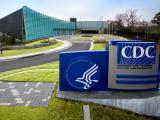Feb 23, 2012 (CIDRAP News) – A coalition of 51 medical and health groups is urging congressional leaders to act within the next few months to boost the development of new antibiotics, saying the ongoing loss of effective ones due to bacterial resistance is becoming a crisis.
"Many people may not realize how close we are to losing the ability to fight lethal infections," Thomas G. Slama, MD, president of the Infectious Disease Society of America (IDSA), said in a press release that was issued along with a letter to House leaders.
The coalition, led by the IDSA, said the pipeline of new antibiotics has shrunk sharply in recent years. The group is urging Congress to help restore it by building incentives into the Food and Drug Administration (FDA) Prescription Drug User Fee Act (PDUFA), which is considered one of the few "must-pass" bills in Congress this year, the IDSA said.
If the PDUFA doesn't pass, the FDA will have to lay off personnel by the end of September, the IDSA said, adding that congressional leaders have said they hope to complete work on the bill by June.
The coalition said in its letter, "A growing number of patients are suffering from and succumbing to antimicrobial-resistant infections, because we have too few, and in some cases no, antibiotics to treat them."
As an example of such patients, the release cites 11-year-old Addie Rerecich of Tucson, Ariz., who suffered life-threatening infections with resistant strains of Staphylococcus aureus, Escherichia coli, and other pathogens last year. She spent 5 months in a hospital, needed a lung transplant to save her life, and finally left the hospital in a wheelchair, suffering from weakness and vision loss.
"Antibiotic-resistant infections have devastated my daughter's life and our family's health, well-being, and finances," said Addie's mother, Tonya Rerecich, in the release.
The coalition said that close to 20 drug companies had large antibiotic research and development programs in 1990, but only two or three have them today. This shrinkage is attributed to a combination of scientific, regulatory, and economic challenges.
The release and letter do not specify exactly what kinds of incentives the coalition would like Congress to provide. The release says that provisions being considered for the PDUFA are "unlikely to provide the full answer," but are "a step in the right direction." It also notes that the IDSA, acting on its own, has recommended several specific measures to Congress.
Robert Guidos, JD, the IDSA's vice president of public policy and government relations, told CIDRAP News that the aim of the letter is to demonstrate broad support for addressing antibiotic research and development in the PDUFA.
"The letter is to anticipate questions from Congressional leaders about why Congress should do anything special to address antibiotic R&D as opposed to multiple other drug categories," Guidos commented by e-mail. "The letter shows that advocates across the spectrum of medicine, public health, women's health, children's health, veteran's health, health systems, etc. view the broken antibiotic pipeline and antimicrobial resistance as unique and urgent problems affecting society broadly as well as specific patients facing multiple medical problems/interventions (surgery, cancer, neonatal care)."
The coalition is also urging Congress to provide incentives for developing new diagnostic tests, which it said can help reduce the cost of antibiotic clinical trials by identifying eligible patients and can help public health officials recognize emerging infections and patterns of resistance.
The long list of signers of the letter includes, for a few examples, the American Academy of Pediatrics, the American Public Health Association, the American Society for Microbiology, the Association for Professional in Infection Control and Epidemiology, and the National Association of County and City Health Officials.
See also:
Feb 22 coalition letter to House leaders



















